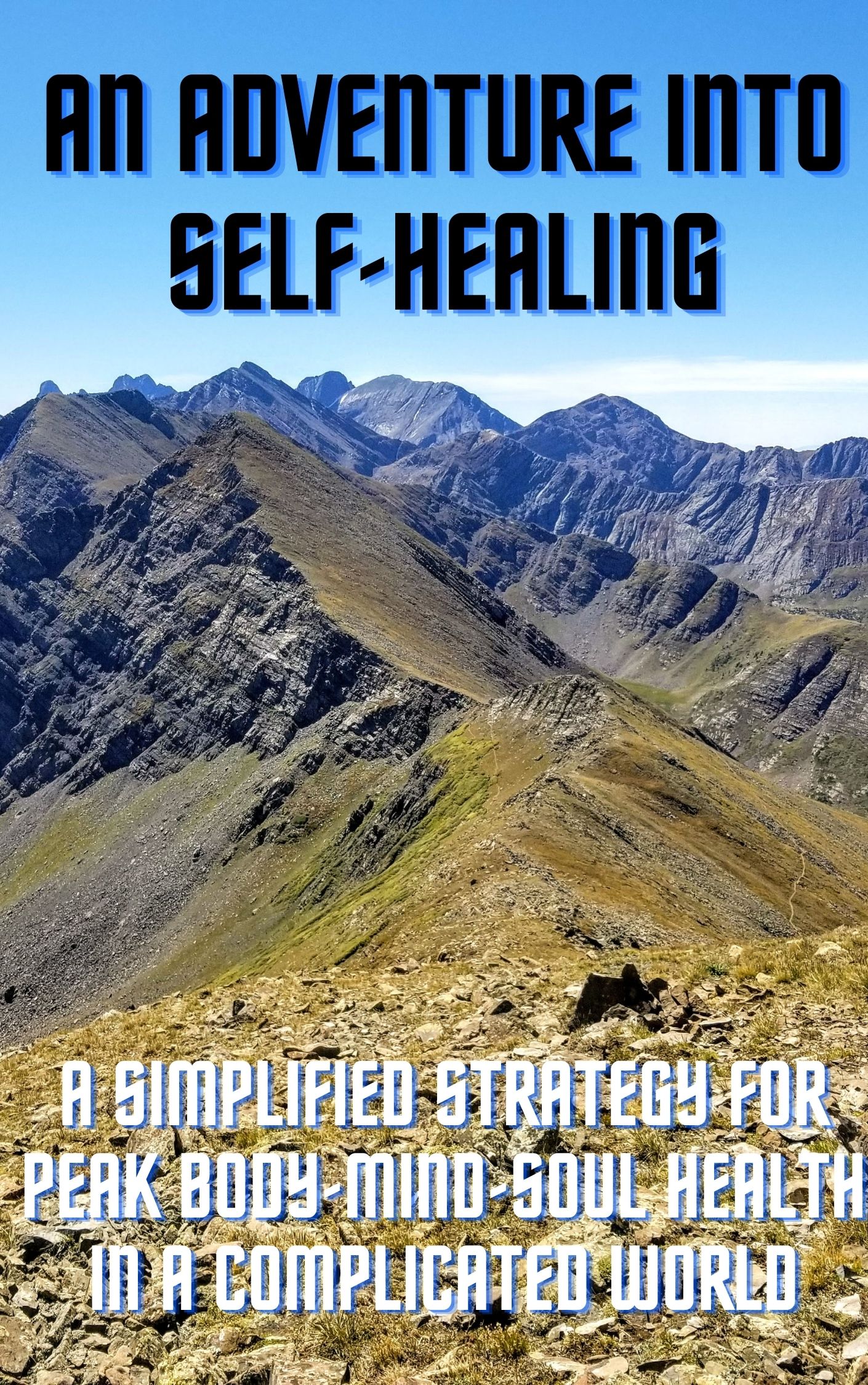Way ~ Through Your Body!
- Home
- Body Window ~ Expanded
- How to Manage Anger
Learning How to Manage Anger
If you learn how to manage anger, you can have whole health!
Examine your beliefs about anger. Do you believe that managing anger means you must learn how to control anger? Do you actually control your anger or does it control you? Do you explode on a dime, or are you walking around like a zombie, from holding it all in? Are you frequently depressed?
"Do not fight against pain; do not fight against irritation or jealousy. Embrace them with great tenderness, as though you were embracing a little baby. Your anger is yourself, and you should not be violent toward it. The same thing goes for all your emotions." ~ Thich Nhat Hanh
Well, this is a hard pill to swallow, isn’t it? Embracing anger as a way to deal with it? But surely we have to "control" it! Don’t we need to keep anger from coming at all!
The Body Window's Self-Guided Healing Course is Now Reduced to only 19.95 USD!
Click here to learn more about how this healing course can change your life!
Anger is a very powerful emotion that we all experience. You may try to deny that you have anger, yet you shall see that denying anger is harmful as well.
Each person approaches anger differently. If you are to learn how to manage anger, you must first become aware of its existence in your own life and how you react when anger, irritation and jealousy present themselves to you.
our bodily response to anger
The way of our bodies, when we get upset over something, is to restrict our movements. Emotions and movement are very closely intertwined.
When we feel angry, in order not to show it, we restrict our bodies, by holding our breath and tensing up our muscles. It is as if we are constricting our bodies to hold in the emotion that would otherwise come roaring out.
We hunch over, restrict our breath, tense up and "hold it inside." Have you ever wondered where your anger goes when you hold it inside?? Reflect on this for a moment.
Anger can be manifested in almost any body part or body system, but usually it targets those areas that hold current meaning for you. For example, if you feel like you are being asked to carry too much responsibility, your anger may be held in your arms, your shoulders or your back.
If you feel like you have no voice and are never heard, you may hold your anger in your throat, leading to thyroid, and neck and throat conditions. If you feel like you have no opportunities and are angry that you don’t make more money, your lower back may be killing you.
Where do you hold your anger in your body???
learning how to deal with anger
I really don’t like the idea of learning how to "control" anger as a way of dealing with it. We never really can control our emotions. They just arise spontaneously.
As anger arises, it will come out one way or another through expression or suppression. Emotions are our internal gage of our current condition so it is important to pay attention to your anger. Learning how to manage anger when it arises is the best approach.
Lovingly admitting to yourself that you become angry, and recognizing it is the first step toward how to manage anger. To deny that you have anger is to deny that you are alive.
You may have become very, very good at not showing any anger, but this does not mean that you don’t ever become upset or angry. Most likely you are suppressing it.
Embracing anger as part of yourself and a reflection of who you are in the moment that you feel the anger is the first step in learning how to manage anger.
The emotion of anger itself is neither good nor bad. Anger is only a gauge of what you believe at that moment that the anger arises. What you choose to do in response to that same anger is another story. Believe me, how you respond to anger is always a choice.
b-r-e-a-t-h-e
Understanding how to manage anger always begins with the breath and the relaxation that it provides. It is physiologically impossible to remain upset and angry when you are breathing deeply and slowly. Here is the reason:
When you experience anger, the sympathetic nervous system is stimulated, creating the famous fight or flight syndrome. You are upset and you gear yourself up, physically to either run or do battle. Think of a cat getting ready to pounce on a mouse. This response to anger is a survival mechanism that is built into us and is evidence of the body-mind connection.
When you breathe deeply and slowly, you stimulate the opposite nervous system, the one that brings relaxation and also aids digestion. This is the parasympathetic nervous system.
In my article How Emotions Affect Our Body, I talk about my 90-second cure for dealing with strong emotions. The hormone, cortisol that is released when you become angry, lasts in your bloodstream about 90 seconds. If you could breathe deeply while waiting out this 90-second period, you can learn how to manage your anger.
If the biochemical reaction to your emotion lasts only 90 seconds in your body, if your anger persists beyond this, you are choosing to hold the anger longer, instead of releasing it! If viewed in this manner, this knowledge is an amazingly powerful way to help you change your response.
Feel It and Heal It!
This process for how to manage anger, I call "Feel It and Heal It!" It is simply these steps:
1. Recognize that you are becoming angry.
2. Accept that it is OK to feel angry over this current situation that upsets you.
3. Tell yourself, "I understand that you are angry and it is OK."
4. Deeply feel your pain as you acknowledge it and fully experience your anger.
5. Begin breathing deeply and slowly at least 10-20 times until the 90 seconds pass. Say silently to yourself "Feel it and Heal it!" as you deeply breathe. Close your eyes if it assists your process.
6. Sense the change in your body as you let go of the anger.
7. Now close your eyes and say a positive affirmation like "I release my anger to God/the Universe and I am whole."
Whenever I write about anger, and how to manage anger, I can’t but help conjure up Don Henley’s voice singing in "The Heart of the Matter:"
"There are people in your life who've come and gone. They let you down - you know they hurt your pride. You better put it all behind you baby; cause life goes on. If you keep carryin' that anger; it'll eat you up inside, baby! I've been trying to get down to the heart of the matter. But my will gets weak and my thoughts seem to scatter. But I think it's about forgiveness... forgiveness."
This is timely advice, because moving on without anger is always about forgiveness. If you learn to release your anger as it arises, then forgiveness becomes possible.
The person causing you the pain is not responsible for your anger - - - YOU ARE! You can never change the fact that bad things happen to you or that people disappoint you. All that you can change is your response to the current situation!
People will always let you down. You can count on it. Just expect it. Expect to be angry! Learn how to manage your anger instead.
Anger arises when you are unable to control others. Learn instead to release your anger using the above tool and forgive others of their inability to please you 100 percent of the time.
The Effects of Unreleased Anger
Those who cannot learn how to manage anger will absorb it and hold it in their bodies. Our minds, our emotions and our bodies are sublimely intertwined. Chronically held tensions in the body lead to all types of imbalances and neuromuscular problems. I have written about this issue extensively on this website.
Deep prolonged helplessness as a result of absorbed anger may lead to depression as well. Depression and anger have been shown to go hand-in-hand. Unresolved disappointment in others and/or in yourself will lead to anger that may progress to depression.
Anger and stress lead to chronic inflammation in the body. Inflammation is the precursor to chronic illnesses such diabetes, heart disease, Alzheimer’s and cancer. I have written about the relationship between inflammation, anger and disease in my article The Phenomenon of C-Reactive Protein and Inflammation.
releasing anger through bodywork
Yoga and foam rolling are wonderful ways to learn about where it is you have stored your anger. These bodywork modalities will help you heal your physical, emotional and spiritual pain, by using your body as a tool of discovery. Please see my articles on yoga, foam rolling and intuitive movement to learn more about these powerful techniques to help you heal and learn how to release your anger in the process.
In my opinion, talk therapy is insufficient for healing. Your body is a wonderful instrument to initiate positive movements when your tired brain cannot. Your body can lead you out of your depression and anger.
When you mobilize your body, through just making yourself start moving, the rest of your heart and soul will eventually follow if you remain persistent.
Training your body to be open and aware will help you to open to your mental and emotional blockages. Learning to stay connected and in the moment with your body is so important for your overall health.
I cannot emphasize it enough. Meditative movements that re-connect you to yourself through your breath is the only way to initiate healing when your brain knows not where to turn! Your body truly is a window to your soul!
May you find health and healing of your body-mind-soul when you learn how to manage anger. Just learn to feel it and heal it so your depression and anger can be acknowledged, felt and healed! May your path to learn how to manage anger be filled with healing movements for your soul!
More articles on the subject of the Body Window:
- Developing Intuition by Using Your Body ~ The Body Window Speaks.
- Nothing is Hidden from Your Soul!
- What is a Metaphor and Why is it Important?
- How Emotions Affect Our Body ~ Feeling vs. Denying Our Emotions!
- Achieving Emotional Health Through the Mind Body Connection
- The Body-Mind Connection and Psychosomatic Illness
- Spiritual Fasting to Improve Self Awareness
Can't find what you're looking for? Search this website:
Support This Website and Its Mission
Thank you so much for considering a donation to help support this website. I appreciate your thank-you for access to so much free information. If you feel you have been blessed by this website, thank-you for your donation! I promise, that I will continue to provide you with lots of information and pay it forward to all in whatever way I can!
© Copyright 2009-2025, by Elle Bieling, BodyWindow.com
All Rights Reserved
We also hereby confirm, as stated in our Privacy Policy, that we do not sell personal information of any kind.
Protected by Copyscape Plagiarism Checker ~ Do not copy content from this page.
Information on this website is not intended for medical advice. See your health care provider for any health concerns. By using this website and/or practicing any yoga postures, foam rolling exercises or other physical movements contained herein, you are agreeing that you are in good health, cleared by your healthcare professional to participate in physical activities and you release The Body Window from any liability involved in the practice.




